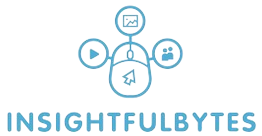Imagine a world where your purchases zip through the sky, landing gently at your doorstep. Delivery drones are no longer the stuff of science fiction! This exploration dives into the fascinating realm of drone delivery, examining the technology, the logistics, and the potential impact on our everyday lives. Get ready to explore the future of fast and efficient deliveries, where convenience takes flight.
Rise of Delivery Drones
The rise of delivery drones signifies a paradigm shift in the realm of logistics. This transformative journey is fueled by a convergence of technological advancements that have propelled traditional delivery systems into a futuristic era. The increasing demand for speed and efficiency, coupled with breakthroughs in robotics and artificial intelligence, has paved the way for the widespread adoption of these unmanned aerial vehicles.
This evolution is not merely a leap in efficiency but a revolution in the very concept of last-mile deliveries. Delivery drones are now positioned as agile and responsive solutions, capable of navigating through urban landscapes with unprecedented speed and precision. As consumer expectations for rapid deliveries continue to escalate, the rise of delivery drones emerges as a natural and indispensable progression in the evolution of logistics.
Benefits of Delivery Drones
The benefits of delivery drones extend beyond their futuristic allure, making them a game-changer in the world of logistics. Here are four key advantages that underscore the significance of this innovative technology:
- Swift and Efficient Deliveries: Delivery drones excel in speed, navigating through the skies with unparalleled agility. This swift mode of transportation ensures that packages reach their destination in record time, meeting the growing demand for rapid and efficient deliveries.
- Environmental Impact: Embracing drone deliveries aligns with a more sustainable and eco-friendly approach to logistics. With reduced reliance on traditional transportation methods, delivery drones contribute to lower carbon emissions, making them an environmentally responsible alternative.
- Reach in Remote Areas: One of the notable benefits is the ability of drones to access remote or hard-to-reach locations. Whether delivering medical supplies to remote villages or reaching disaster-stricken areas swiftly, delivery drones play a crucial role in bridging logistical gaps in challenging terrains.
- Cost-Effective Operations: The operational efficiency of delivery drones translates into cost-effectiveness for businesses. By streamlining the last-mile delivery process, companies can optimize resources, reduce overhead costs, and ultimately enhance their overall profitability.
These benefits collectively position delivery drones as a transformative force, offering not just speed but also environmental responsibility, accessibility, and economic advantages in the ever-evolving landscape of logistics.
Challenges Faced by Delivery Drones
| Challenges | Description | Solutions |
| Regulatory Hurdles | Delivery drones face stringent regulations | Collaborate with regulatory bodies |
| Technical Limitations | Limited payload capacity and range | Research and development for advancements |
| Public Concerns | Safety, privacy, and noise pollution concerns | Public awareness campaigns and transparent communication |
- Regulatory Hurdles: Delivery drones encounter a maze of regulations governing their operation. From airspace restrictions to safety standards, navigating these regulatory hurdles requires collaboration with regulatory bodies to establish clear guidelines and protocols for safe and legal operations.
- Technical Limitations: Despite technological advancements, delivery drones still face limitations in terms of payload capacity and range. Overcoming these challenges necessitates ongoing research and development efforts aimed at enhancing drone capabilities, including improvements in battery technology and aerodynamics.
- Public Concerns: Public perception of delivery drones encompasses various concerns, including safety, privacy, and noise pollution. Addressing these concerns requires proactive measures such as public awareness campaigns highlighting the safety features of drones, transparent communication regarding data privacy policies, and efforts to minimize noise emissions during flight operations.
Navigating these challenges is essential for the widespread adoption and successful integration of delivery drones into existing logistics networks, ensuring their seamless and sustainable operation in the future.
Technology Behind Delivery Drones
The intricate technology that powers delivery drones can be broadly categorized into navigation and intelligence, and propulsion systems.
Navigation and Intelligence:
- GPS Navigation: Delivery drones rely on advanced GPS systems for precise navigation. This technology allows them to chart optimal routes, avoiding obstacles and ensuring accurate deliveries. GPS enhances the overall efficiency and reliability of drone operations.
- Artificial Intelligence (AI) for Route Optimization: AI plays a pivotal role in optimizing delivery routes. Machine learning algorithms analyze real-time data, considering factors like weather conditions, traffic patterns, and delivery schedules. This intelligent route planning ensures timely deliveries and minimizes operational disruptions.
- Sense-and-Avoid Technology: Many delivery drones are equipped with sensors and cameras, enabling them to detect obstacles in their path. This sense-and-avoid technology enhances safety by allowing drones to navigate around obstacles, ensuring secure and collision-free deliveries.
Propulsion Systems:
- Battery Technology: The power source is a critical component of delivery drones. Advances in battery technology are crucial for extending flight durations and payload capacities. Lithium-ion batteries, for example, are commonly used for their energy density and efficiency, enabling drones to cover longer distances on a single charge.
- Propeller Design and Aerodynamics: Efficient propulsion is essential for stable and controlled flight. Propeller design and aerodynamics play a key role in optimizing energy consumption and ensuring the drone’s stability during different flight conditions. Ongoing research in this area contributes to the overall performance and efficiency of delivery drones.
Understanding the intricate interplay of these technologies provides insights into the sophisticated systems that enable delivery drones to operate seamlessly in various environments, delivering packages with precision and reliability.
Current Applications
Delivery drones have already found practical applications across diverse industries, showcasing their versatility and efficiency. In the realm of healthcare, drones are being utilized for the swift transport of medical supplies, enabling timely deliveries of critical medications and equipment to remote or inaccessible areas. This capability has proven especially valuable in emergency situations and during natural disasters, where traditional transportation methods may face challenges.
Moreover, the food delivery sector has embraced drone technology to enhance its services. Companies are exploring drone deliveries for quick and efficient distribution of meals, offering customers a faster and more convenient way to receive their orders. The ability of drones to navigate urban landscapes with ease positions them as a promising solution for overcoming traffic congestion and ensuring hot meals reach customers promptly. As these current applications continue to evolve, the scope for further integration of delivery drones across industries appears boundless.
Future Innovations in Drone Delivery
The future of drone delivery promises a wave of innovations that will further revolutionize the logistics landscape. Anticipated advancements include:
- Autonomous Drones: The development of fully autonomous drones is on the horizon, eliminating the need for human intervention in the delivery process. These drones will possess advanced obstacle detection and avoidance systems, enabling them to navigate complex urban environments seamlessly.
- Integration with Smart Cities: Delivery drones are expected to play a pivotal role in the smart cities of the future. Integration with smart city infrastructure will facilitate synchronized operations, optimizing delivery routes, and minimizing environmental impact. Drones could become integral components of urban logistics systems, enhancing overall efficiency.
- Collaboration with Emerging Technologies: The synergy between delivery drones and emerging technologies like 5G and blockchain is poised to redefine the delivery ecosystem. High-speed, reliable 5G connectivity will enable real-time communication and control, while blockchain can enhance security and transparency in the supply chain, ensuring the integrity of delivered goods.
- Environmental Sustainability Measures: Future drone designs are likely to prioritize environmental sustainability. From more energy-efficient propulsion systems to biodegradable materials used in manufacturing, innovations will focus on minimizing the ecological footprint of drone deliveries. These measures align with global efforts to promote environmentally responsible technologies.
As these innovations unfold, the future of drone delivery holds exciting prospects, ushering in an era of unparalleled efficiency, sustainability, and integration with the broader technological landscape.

